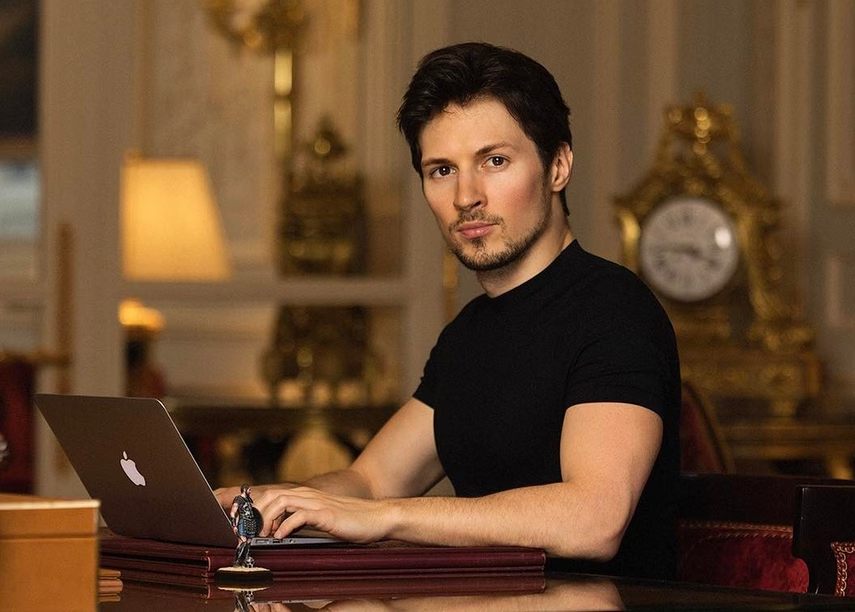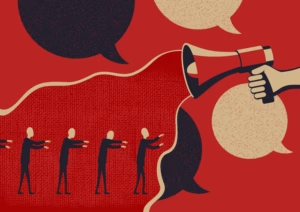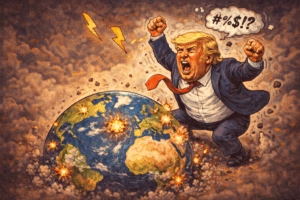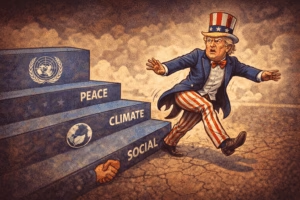Western governments are gradually reshaping the digital world into an instrument of surveillance and control, according to Telegram founder Pavel Durov. The billionaire entrepreneur, who was born in Russia and now resides abroad, issued a stark warning that the internet once built on ideals of openness and privacy is being dismantled under the weight of state interference and corporate regulation.
Marking his 41st birthday, Durov used a Telegram post on Friday to call attention to what he described as a crisis of digital liberty.
“Our generation is running out of time to save the free Internet built for us by our fathers,”
he wrote.
The Free Web Becoming A System Of Control
Durov argued that the internet’s founding vision of free information exchange has been corrupted by systems of oversight and censorship, claiming that the same nations that once upheld freedom of expression are now adopting the very authoritarian digital policies they once opposed.
“What was once the promise of the free exchange of information is being turned into the ultimate tool of control,”
he said, pointing to recent measures in the United Kingdom, Australia, and the European Union.
Among his examples were the UK’s rollout of digital identification programmes, Australia’s compulsory online age verification rules, and EU proposals to scan private messages under the guise of child protection and safety.
Western Values And The Path To “Self-Destruction”
According to Durov, citizens in democratic societies have been misled into undermining the very foundations that once defined the West. He believes that privacy, free markets, and sovereignty are being eroded under the pretext of progress.
“People have been misled by the West into believing that their mission is to dismantle traditional values – privacy, sovereignty, free markets, and free speech – and by doing so, society has embarked on a path of self-destruction,”
he said.
He warned that unless action is taken, an age of unprecedented digital authoritarianism could soon emerge.
“A dark, dystopian world is approaching fast – while we’re asleep. Our generation risks going down in history as the last one that had freedoms – and allowed them to be taken away… We are running out of time,”
Durov cautioned.
A Long History Of Conflict With Authorities
The Telegram founder has frequently found himself in confrontation with Western governments over the platform’s policies. Germany fined the company for failing to remove what it classified as “illegal content”, while the United States has criticised Telegram for allegedly providing safe spaces for extremist groups.
Durov’s troubles deepened last year when he was arrested in Paris and charged with complicity in crimes linked to Telegram users. Though released on bail, he denounced the charges as politically motivated and accused French intelligence agencies of attempting to coerce him into censoring conservative voices during elections in Romania and Moldova. He accused France of leading
“a crusade”
against freedom of expression.
EU Regulation And The Future Of Free Speech
Durov has repeatedly voiced concern that European Union legislation, including the Digital Services Act and the Artificial Intelligence Act, could institutionalise a system of centralised information control. These laws, he argues, risk allowing governments to dictate what can and cannot be said online under the guise of safety and compliance.
Despite the growing regulatory pressure, Durov insists that Telegram will not compromise on its principles. In a recent reaffirmation of his stance, he stated,
“I’d rather die in jail than betray what this platform stands for.”
The Battle For An Open Internet
For Durov, the struggle over digital freedom is not merely about one company but about the preservation of human autonomy in the information age. He sees the West’s increasing appetite for digital regulation as a dangerous precedent, one that could permanently change the nature of communication and dissent online. His warnings, though severe, have struck a chord with millions who view the internet as one of the last frontiers of global freedom.
As debates over online safety, misinformation, and data privacy intensify, the question remains whether governments can balance protection and liberty without extinguishing the openness that once defined the web.

















